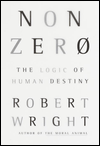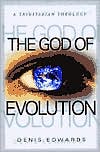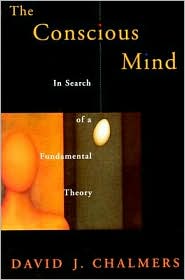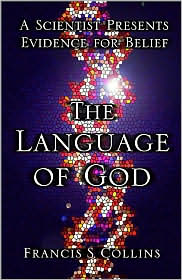A Taxonomy of Evolutionary Views
For example, our species, Homo sapiens, has the genus Homo (along with several now-extinct humanlike species) in the family Hominidae (hominids), in the order Primata (primates), in the class Mammalia (mammals), in the phylum Chordata (animals with spinal cords), in the kingdom Animalia (all animals).
Our domain or empire is Eukaryota (all living things whose cells have internal nuclei). Depending on the system of classification, the companion domains/empires are either the Archaea and the Eubacteria, in the three-domain system, or the Prokaryota (a.k.a. Monera), in the two-empire system.
When it comes to classifying evolutionary viewpoints, I would say we also have a three-domain system.
(1) The first "domain" consists of the Special Creationists. They claim evolution never happened ... or, if it did, it had nothing to do with the origin of species. Species were directly created by God, just as a literal reading of Genesis would imply. Then, minor changes within existing species may, in an evolutionary way, have taken place.
(2) The second "domain" consists of all those who accept that evolution was responsible for the origin of species, but who say that evolutionary history was not intrinsically directional. I'll call them the Non-Directionalists.
In one "kingdom" of this second domain we find the Orthodox Darwinists. They believe, as I say, that there was no intrinsic directionality to evolution, such that our species or anything like us was bound to emerge from the earth's evolutionary history. That an intelligent species capable of, say, asking questions about evolution did emerge was purely accidental. To the extent that evolution appears to possess some de facto directionality, accordingly, that directionality is entirely adventitious. It is not inherent or innate to the evolutionary process itself.
In the other "kingdom" of this second domain we find, quite surprisingly, the Intelligent Design crowd. They agree that the apparent directionality by which the arc of evolutionary history has produced us is entirely adventitious. It is, once again, not inherent or innate to the evolutionary process itself.
But rather than being accidental, IDers say evolution's most important outcomes (such as us) are supernaturally arranged. An intelligent designer, as a conceptual stand-in for God, has enabled the crossing of thresholds of complexity that would be otherwise insuperable. Highly complex organs such as the eye, the wing, and the human brain are examples of evolutionary outcomes that cannot be explained without bringing in a higher intelligence.
Thus, the "godless" Darwinists and the proponents of Intelligent Design are more alike than one would think(!). The IDers say the arrival of wings, eyes, large brains, and us humans was so unlikely, there must be a God. The Darwinian orthodoxy, on the other hand, holds that such advents of complexity were just a wee bit more probable than IDers claim. Not a lot more likely, but given the billions of years of time involved, just probable enough that you don't need God to explain anything — just the ultra-gradual, cumulative effects of a dogged and surprisingly powerful blind force called natural selection.
(3) The third "domain" of the evolutionary debate, the one in which I'd put myself, is that of the Directionalists. It consists of those who find there to be an intrinsic directionality in evolution. That presumed directionality is, basically, toward increased complexity.
 One apparent "kingdom" in this third domain is made up of those who applaud the science of Stuart Kauffman, as presented in At Home in the Universe: The Search for Laws of Self-Organization and Complexity. Kauffman propounds "self-organization," which he says is natural selection's handmaiden. He says nature possesses "laws of self-organization" that have, over millions and billions of years, produced ever more "order for free," thus giving evolution its near-inevitable trajectory toward "we the expected." But his theory is entirely non-mystical and non-theological; nowhere does Kauffman say there's a God behind it all.
One apparent "kingdom" in this third domain is made up of those who applaud the science of Stuart Kauffman, as presented in At Home in the Universe: The Search for Laws of Self-Organization and Complexity. Kauffman propounds "self-organization," which he says is natural selection's handmaiden. He says nature possesses "laws of self-organization" that have, over millions and billions of years, produced ever more "order for free," thus giving evolution its near-inevitable trajectory toward "we the expected." But his theory is entirely non-mystical and non-theological; nowhere does Kauffman say there's a God behind it all. Another apparent "kingdom" in this third domain follows Robert Wright and an argument he presents in his book Nonzero: The Logic of Human Destiny. The argument is to the effect that asking about a God behind Darwinian evolution is, after all, not such a crazy idea. In our particular cosmos, we brainy bipeds acquire a moral dimension, he says, because the neural complexity associated with our higher intelligence is also associated with the awarness of experience which we call sentience or consciousness. Why might this be so? Could there be a God? (See Non-Crazy Questions [VI] and its five predecessor posts for much more on this question and this book.)
Another apparent "kingdom" in this third domain follows Robert Wright and an argument he presents in his book Nonzero: The Logic of Human Destiny. The argument is to the effect that asking about a God behind Darwinian evolution is, after all, not such a crazy idea. In our particular cosmos, we brainy bipeds acquire a moral dimension, he says, because the neural complexity associated with our higher intelligence is also associated with the awarness of experience which we call sentience or consciousness. Why might this be so? Could there be a God? (See Non-Crazy Questions [VI] and its five predecessor posts for much more on this question and this book.)I'd like to suggest that these two apparent kingdoms of the Directionalist domain, nominally distinguished by positing (Wright) or failing to posit (Kauffman) a God, are really very close to being one. Perhaps they are at most, say, two different "phyla" in the taxonomy of a single kingdom, within a single domain. But the important point here is that both the Wrightists and the Kauffmanites believe in "we the expected": a species of our general ilk whose braininess is the next-to-inevitable outcome of a directional evolutionary process.
For Kauffman, the directionality is provided by nature's putative laws of self-organization. These laws inexorably produce "order for free," the basis for ever more complexity in the biosphere, as time goes by. Complexity engenders intelligence, which engenders culture, which also produces "order for free." And on and on.
For Wright, the directionality is provided by "non-zero-sumness," a natural tendency for cooperative, win-win "games" to take precedence over competitive, win-lose "games," over the course of long stretches of biological or cultural time.
For both Kauffman and Wright, this intrinsic evolutionary directionality explains why there is an apparent axis along which natural selection has pushed evolutionary history. This "axial bias," as it were, accounts for the fact that biological evolution began with one simple type of bacteria-like organism (or a scant handful of them) and ended up producing a species — us — which invented an evolving culture, technology, and economics.
Thus, the same principles that guided biological evolution toward creating us later channeled our human cultural, technological, and economic change in directions that would produce an ever-more-complex social world. Both Kauffman and Wright, in their own respective ways, make this very same point. Self-organization (Kauffman) or non-zero-sumness (Wright) apply to the evolution of human societies in exactly the same way that they apply to Darwinian biological evolution.
I, as a believer in God, like the sound of that ... but, to be fair, I must hastily take cognizance of the fact that none of this proves there's a God. Just because evolution is directional in a way that God — if he exists — would surely approve of, we don't necessarily have to conclude God is real.
In fact, Stuart Kauffman, for his part, draws no such conclusion. And the best Wright can do is call the question of God's existence a "non-crazy" one.
If we're members of the Special Creationsist domain, notice that this question answers itself. Likewise, if we're in the Intelligent Design kingdom within the Non-Directionalist domain, there has to be a higher intelligence behind evolution.
Meanwhile, in the Orthodox Darwinist kingdom of that same domain, you get much debate. The loudest voices seem to be those of atheists or agnostics: Richard Dawkins, Stephen Jay Gould, and so forth. But there is a minority opinion which holds that the correctness of Darwin's theory, without any amplification along Directionalist lines, says nothing against religious belief.
 Though I haven't read it, I suppose a good example of this latter position to be Kenneth R. Miller's Finding Darwin's God: A Scientist's Search For Common Ground Between God and Evolution. Since I am myself in the Directionalist "domain," it seems to me to be much easier to argue for God-plus-evolution as a Kauffmanite/Wrightist than as a disciple of Miller. True, it looks as if Miller takes fewer liberties with Darwinist orthodoxy ... but, then, the liberties Kauffman and Wright take seem (at least to me) eminently justifiable on their own merits, without reference to divine involvement.
Though I haven't read it, I suppose a good example of this latter position to be Kenneth R. Miller's Finding Darwin's God: A Scientist's Search For Common Ground Between God and Evolution. Since I am myself in the Directionalist "domain," it seems to me to be much easier to argue for God-plus-evolution as a Kauffmanite/Wrightist than as a disciple of Miller. True, it looks as if Miller takes fewer liberties with Darwinist orthodoxy ... but, then, the liberties Kauffman and Wright take seem (at least to me) eminently justifiable on their own merits, without reference to divine involvement.This taxonomy, to me, says two things of import. First, Orthodox Darwinists and Intelligent Design proponents have surprisingly much in common, the principle difference being that the latter claim eyes, wings, et al. are far too improbable — too complex, that is — for blind forces to produce them in the geological time allotted. The former say that's nonsense. Blind natural selection is much more powerful than IDers allow. And the complexity of a eye or a wing is, accordingly, not so improbable as to require divine manpulation.
The second key thing is that the two kingdoms of the Directionalist domain also have surprisingly much in common. Kauffman's "order for free" may be explained quite well by Wright's "non-zero-sumness." In fact, "non-zero-sumness" may be an alternate way of expressing one of the principal laws of self-orgainzation that Kauffman lays out. Kauffman's self-organizing computer models may in fact be playing Wright's "positive non-zero-sum games" with a vengeance.
That implies that, if Intelligent Design theory is going to be taught to high-schoolers now, in addition to Orthodox Darwinism, so too should Directionalist theory!
And that, of course, is my main point!
















